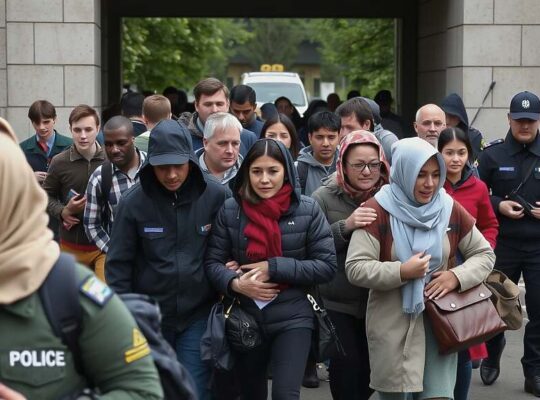The German Government’s Human Rights Commissioner, Lars Castellucci, has cautioned against the institutionalization of national border controls within the European Union.
Speaking to the Redaktionsnetzwerk Deutschland, Castellucci acknowledged the importance of maintaining oversight regarding who enters a country and the routes they take. However, he expressed concern that the abandonment of collaborative, unified approaches to irregular migration poses a significant threat to human rights.
Castellucci emphasized that measures such as border checks, rejections and limitations on legal pathways are, at best, temporary solutions. While they may offer temporary relief to local authorities, they fail to address the underlying causes of migration. He argued that sustainable progress hinges on improving conditions in countries of origin and transit, making it more appealing for individuals to remain there. Furthermore, he warned that increasingly restrictive policies undermine Germany’s credibility when attempting to persuade other nations to participate in addressing global displacement and migration.
Castellucci also advocated for continued support for civil sea rescue organizations operating in areas such as the Mediterranean Sea, which assist migrants in distress. He noted that state-run search and rescue operations, particularly those conducted by the Italian Coast Guard, are responsible for the majority of migrant rescues. Despite these efforts, fatalities persist due to the deliberate use of unsafe vessels by human smugglers who prioritize profit over human life. Therefore, he maintained that sea rescue operations, including the work of private organizations, remain vitally important and deserve substantial recognition, particularly as the German government considers curtailing financial assistance to these groups.












